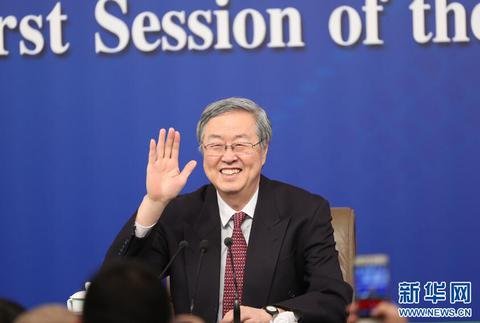Bitcoin, China does not recognize

Zhou Xiaochuan, Governor of the People's Bank of China, Yi Gang, Vice President, Vice President and Director of the State Administration of Foreign Exchange, Pan Gongsheng, answered questions from Chinese and foreign journalists on issues related to “financial reform and development”. In response to questions about digital currency, Governor Zhou Xiaochuan said that virtual currency such as Bitcoin has not been recognized as a retail payment instrument. Currently, the central bank does not accept or recognize related services. At the same time, he also pointed out that the central bank is working with the market to jointly develop digital currency.
Since the 2008 financial crisis, Bitcoin has quietly entered people's horizons under the “aura” of decentralization and cross-border mobility. In the past few years, its momentum has become even more powerful. At the peak, its value has increased by 5 million times compared with 7 years ago. The participants quickly spread from the professional minority to the general public. In China, there has even been an argument that “the stocks are not as good as the speculative coins”. However, in September 2017, according to several financial media reports, Chinese regulatory authorities require domestic bitcoin exchanges to develop a risk-free retreat plan, which will be closed before the end of September. The China Internet Finance Association also issued a reminder that all kinds of so-called "coin" trading platforms have no legal basis for establishment in China.
Wan Hao, chief economist of the International Cooperation Center of the National Development and Reform Commission, believes that the issuance of Bitcoin is not endorsed by national credit. This is a concept of subverting the original monetary system. Although the beginning of Bitcoin is probably expected to make it a currency, there is currently no central bank in a country that recognizes the circulation of Bitcoin.
Liu Dongmin, director of the International Finance Research Office of the Chinese Academy of Social Sciences, pointed out to overseas networks that, unlike electronic payment such as Alipay and WeChat, digital currency is a brand-new digital credit currency that is different from traditional credit currency. There are two types of digital currency, one is a private digital currency represented by bitcoin, and the other is a legal digital currency issued by the central bank. Zhou Xiaochuan pointed out that the digital currency that the central bank is developing is the legal digital currency, which is a form of currency supported by national credit.
Liu Dongmin also pointed out that the legal digital currency is difficult to issue in a comprehensive and large-scale manner in the near future. There are two reasons: First, the technology such as the blockchain required behind the digital currency is not mature enough. Secondly, even if the technology is mature, it needs to be gradually promoted for partial testing and evaluation. According to Caixin.com, the central bank has promoted a blockchain-based digital bill trading platform in the relatively closed bill market. However, there are still many problems to be solved in the digital currency from the promotion to ordinary people.
At the same time, Zhou Xiaochuan also pointed out that digital currency may have some unpredictable effects on financial stability and monetary policy transmission. Therefore, it requires dynamic regulatory measures. Jin Wei, director of the School of Economics at the School of Economics of Shanghai University of Finance and Economics, also commented that “virtual currency” may not only allow gray transactions or even black transactions to be hidden among them, but also likely trigger various risks and “squeeze out” real financial innovations. Not conducive to the continued healthy development of Internet finance.